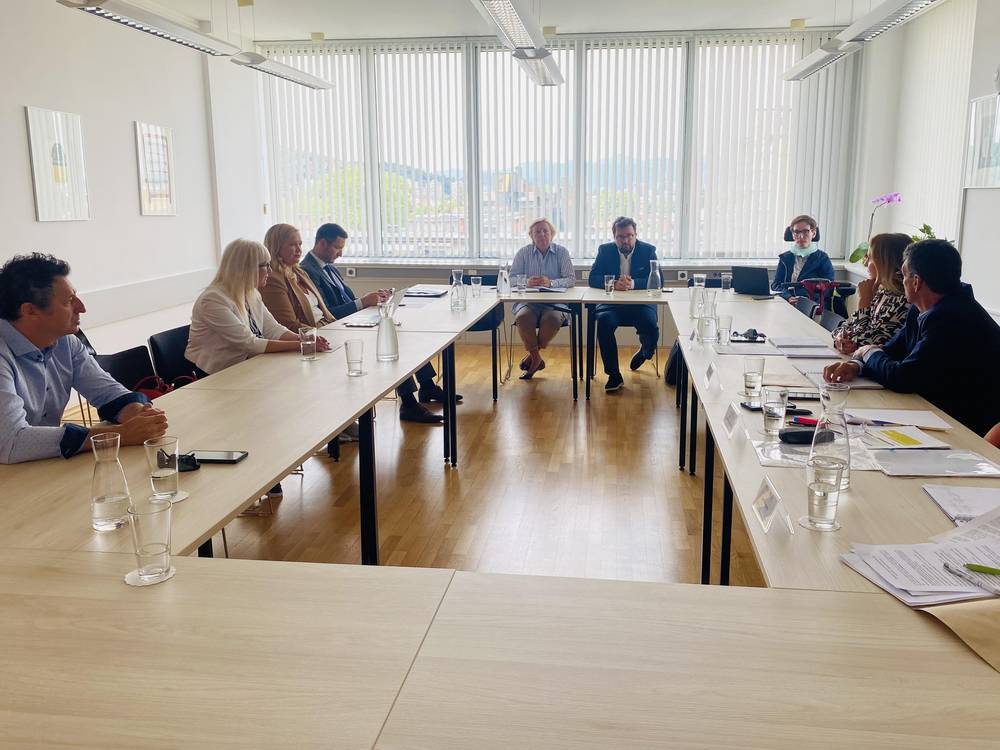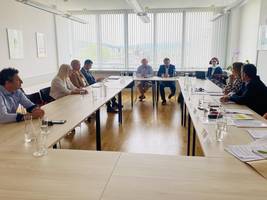Today, 27 May 2024, Human Rights Ombudsman Peter Svetina convened the 12th meeting of the Council of the Ombudsman for Human Rights (Council), which was dedicated to healthcare. Last year, the Ombudsman dealt with around 450 cases in the field of health care and insurance, and the number of complaints considered confirms that this area is facing serious and acute problems.
As Svetina said, it is frustrating because a number of questions in the field of health care have remained unanswered for many years. This is particularly difficult to understand when it comes to vulnerable groups such as children, the elderly, and the disabled. "We are aware that the problem did not spring up yesterday and cannot be solved tomorrow, but it is high time to finally start actively solving it. The longest medical strike does not contribute to solving the accumulated problems, but it certainly seriously threatens the health system. Public health is a fundamental common good, and the absence of convergence of views only exacerbates the problems. The problems with which the complainants turn to the institution of the Ombudsman point to anomalies in the system that require a serious and decisive approach. During the strike, I have therefore repeatedly appealed to the authorities to cut the Gordian knot and find compromise solutions as soon as possible, because the impact is most felt by vulnerable groups and the socially threatened," said Ombudsman Svetina at the meeting.
He reiterated that a strike is a legitimate way to achieve goals, but that strike goals must not be pursued to the detriment of vulnerable groups of the population. "I am satisfied that after the interventions of the emergency services and ourselves, URI Soča heeded the recommendations of the Ombudsman and, after several weeks, finally started to carry out medical examinations in the Outpatient Clinic for drivers with special needs. It is unacceptable for any side to take disabled people hostage during a strike," said Svetina.
The members of the Ombudsman's Council agreed that the months of inability to converge positions only deepen the problems in health care, and cause additional delays and even longer waiting times. At the meeting, Dr. Dijana Možina Zupanc, Deputy Ombudsman, who heads the Council of the Ombudsman for Human Rights, highlighted the problem of long queues, which will unfortunately only get longer with the current strike. Such a large number of people, who are in line for treatment beyond the permissible waiting period, shows that something is seriously wrong with the Slovenian healthcare system. In addition to all the thousands who do not have a personal doctor of their choice, too many face problems in accessing one. "We have also been contacted by many complainants who claimed that they could not access their doctor. Because we wanted to check the situation, we sent a questionnaire to all public health centres about the availability of general and family medicine clinics. The analysis showed unacceptable differences between the general and family medicine clinics, as there are no uniform standards and criteria for what good or appropriate accessibility even means," explained the Deputy Ombudsman.
The members of the Ombudsman's Council emphasised that the large differences in responsiveness between clinics at the primary level are unacceptable, as everyone in the country must have equal access to health services and receive the necessary medical measures when they need them. "The institution of the Human Rights Ombudsman has therefore sent recommendations to the Ministry of Health to regulate the area in such a way that there will no longer be such differences between clinics and the patient will see a doctor when they need one," said Ombudsman Svetina.
He added that the biggest problem is not only the lack of doctors, but in Slovenia we are dealing with a chronic shortage of all other medical personnel. Deputy Ombudsman Dr. Možina Zupanc stressed that difficult working conditions and, at the same time, unstimulating pay year after year force the most stressed health workers to work on ethical grounds alone. Unfortunately, even this wears out eventually, so the country urgently needs a clear vision of what kind of public health care it wants to have and to finally tackle the health care system reform. The interlocutors agreed that Slovenia is a welfare state, so it must ensure the conditions for public health care to function in such a way that people receive quality treatment and health services in a timely manner.

